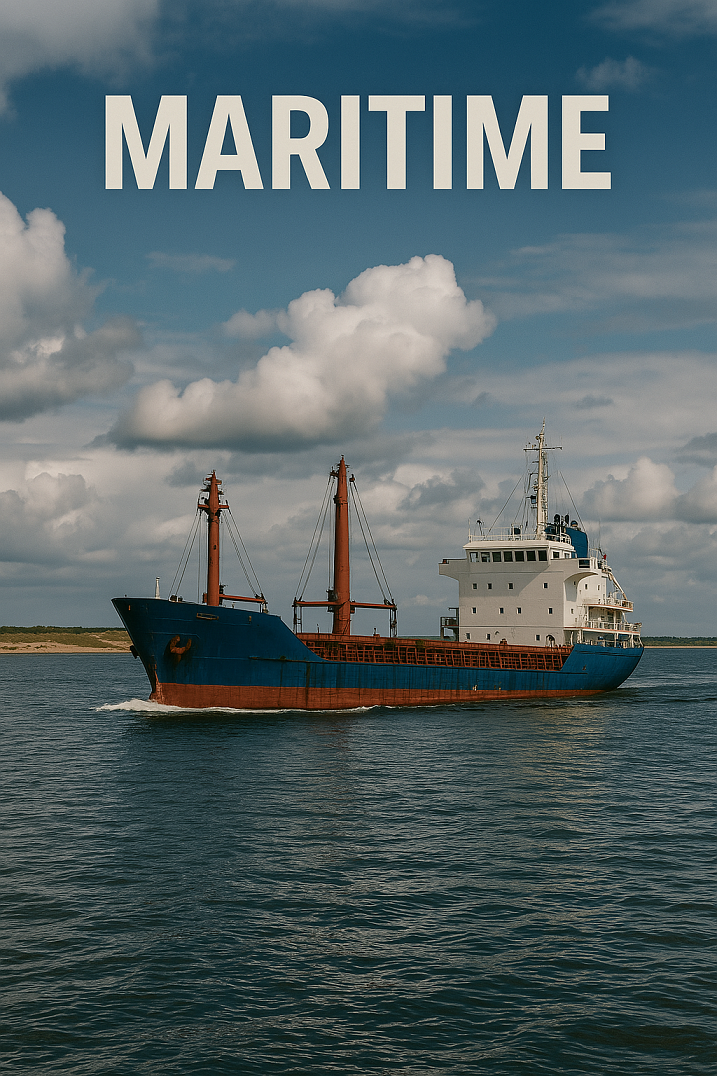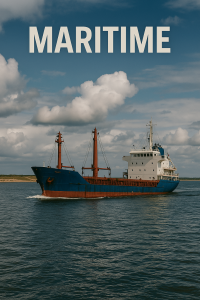Explore the maritime industry—its definition, importance, sectors, and emerging trends. Learn how global shipping, ports, seafarers, and maritime technology shape the world economy. Tailored for cadets, ship officers, and maritime professionals.
The Hidden Engine of Global Trade
Have you ever wondered how your smartphone, your clothes, or even your food reach your country from the other side of the world? The answer lies in the maritime industry—the powerful, complex, and often invisible network that drives 90% of global trade.
From colossal cargo ships crossing oceans to cutting-edge offshore energy systems, the maritime industry is a vital pillar of the global economy. This SEO-optimized article offers a comprehensive overview tailored for maritime students, cadets, ship officers, shipping companies, and professionals.
What Is the Maritime Industry?
The maritime industry refers to all economic activities connected to the transport of goods and people by sea, marine resource extraction, coastal services, and maritime infrastructure.
It encompasses a wide range of sectors including:
-
Shipping and Logistics
-
Shipbuilding and Repair
-
Offshore Oil, Gas, and Renewable Energy
-
Port Management and Operations
-
Maritime Law, Insurance, and Finance
-
Marine Engineering and Technology
-
Fishing and Aquaculture
-
Maritime Education and Training
⚓ The maritime industry is not just about ships; it’s a vast global ecosystem involving ports, people, technology, and policy.
Key Sectors of the Maritime Industry
🚢 1. Shipping & Logistics
-
Transportation of goods via container ships, tankers, bulk carriers, and Ro-Ro vessels
-
Global shipping routes like the Suez Canal, Panama Canal, and Strait of Malacca
-
Logistics services, freight forwarding, and cargo tracking technologies
⚙️ 2. Shipbuilding & Marine Engineering
-
Construction of commercial, military, and offshore vessels
-
Marine machinery, propulsion systems, and ship design
-
Maintenance and drydock services
🏗️ 3. Ports and Terminals
-
Port operations, cargo handling, and stevedoring
-
Smart port technologies and port security
-
Customs, warehousing, and hinterland connectivity
🛢️ 4. Offshore and Energy Sector
-
Offshore oil and gas exploration platforms
-
Offshore wind farms and renewable energy hubs
-
Subsea infrastructure and maintenance vessels
🎓 5. Maritime Education & Workforce
-
Maritime academies and seafarer training institutes
-
STCW certification and simulator-based training
-
Continuous professional development (CPD) for officers and engineers
Why the Maritime Industry Matters
🌍 Global Economic Impact
-
Responsible for transporting over 11 billion tons of cargo annually
-
Supports global supply chains and international commerce
-
Generates millions of jobs in shipping, ports, engineering, and logistics
🧑✈️ Employment Opportunities
-
From deck cadets and marine engineers to logistics managers and port supervisors, the maritime industry offers diverse career paths
-
Specialized jobs in maritime cybersecurity, green shipping, and autonomous vessels are growing
🌱 Environmental and Regulatory Impact
-
Governed by IMO conventions like MARPOL, SOLAS, and MLC 2006
-
New standards aim to reduce GHG emissions, prevent marine pollution, and protect biodiversity
Real-World Applications & Examples
🔹 Example 1: Ever Given Blocking the Suez Canal (2021)
-
Highlighted the vulnerability of global shipping and the strategic role of maritime chokepoints
🔹 Example 2: Offshore Wind Projects in the North Sea
-
Shows the maritime sector’s expanding role in renewable energy development
🔹 Example 3: Autonomous Ships by Yara Birkeland
-
Demonstrates how innovation and automation are redefining vessel operations and crew requirements
Latest Trends and Future Outlook
🚢 1. Green and Sustainable Shipping
-
Shift toward LNG, methanol, ammonia, and hydrogen-fueled ships
-
Use of energy efficiency technologies and digital twins
🤖 2. Digitalization and Smart Ports
-
AI-driven route optimization, cargo tracking, and predictive maintenance
-
IoT-enabled smart ports for faster, safer, and more efficient operations
🛰️ 3. Autonomous and Remote-Controlled Vessels
-
Reduced crew models and remote operation from shore
-
Legal and insurance frameworks still evolving
📚 4. Increased Focus on Education & Upskilling
-
Demand for multi-skilled maritime professionals trained in AI, cybersecurity, sustainability, and data analytics
FAQs: People Also Ask
What is the maritime industry in simple words?
It includes all businesses and activities related to shipping goods and people by sea, as well as ports, shipbuilding, offshore energy, and marine services.
How big is the maritime industry?
According to the UNCTAD, the global maritime industry handles over 80% of world trade by volume and is worth trillions of dollars annually.
What are the top careers in the maritime industry?
Marine engineer, deck officer, logistics coordinator, naval architect, port manager, and offshore installation manager.
How can I start a career in maritime?
Enroll in a maritime academy, pursue STCW certifications, apply for cadet programs, and specialize in technical or operational areas.
Conclusion: Sailing Toward the Future
The maritime industry is the lifeblood of global trade, economic development, and technological innovation. From its traditional roots in shipping to its futuristic ventures in automation and decarbonization, the sector offers vast opportunities for learning, growth, and impact.
⚓ Next Steps:



Thanks, a short but valuable guide for students and cadets.